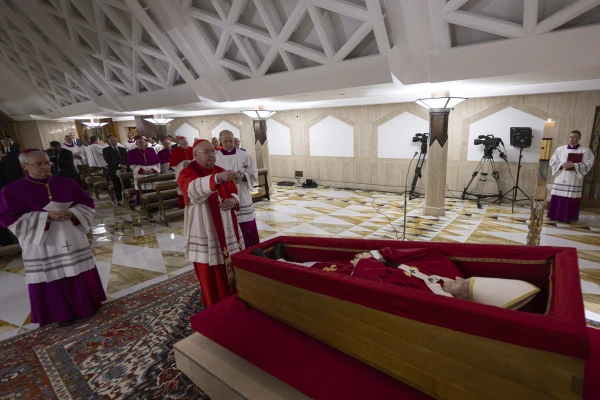The passing of Pope Francis has initiated the intricate process of electing his successor, a ritual steeped in tradition and cloaked in secrecy. At the heart of this process are the cardinal electors, 135 members of the College of Cardinals under the age of 80, tasked with choosing the next leader of the Catholic Church. Among these electors, 18 hail from Africa, representing a significant presence from the continent within the voting body. While Europe dominates the College with 53 electors, Asia follows with 23, positioning Africa as the third largest contingent. This geographic distribution highlights the global reach of the Catholic Church and the diverse perspectives that will contribute to the selection of the new Pope.
The conclave, the gathering of cardinal electors for the papal election, will be preceded by a series of general congregations. These meetings, initially focused on funeral arrangements for the late Pope, will transition into pre-conclave discussions. Cardinal Kevin Farrell, the Camerlengo of the Roman Catholic Church, presides over these congregations. The cardinals will address crucial matters such as the current state and future needs of the Church, the functioning of the Curia (the administrative apparatus of the Holy See), and the Church’s engagement with the world. These deliberations will lay the groundwork for the conclave and inform the selection of the next Pope.
A critical element of the conclave is the oath of secrecy sworn by the cardinal electors. This oath binds them to absolute confidentiality regarding all matters related to the election process, including the deliberations, the voting, and the outcome. This secrecy is designed to protect the integrity of the election and shield it from external influences. The oath emphasizes the sacred nature of the process and the commitment of the cardinals to uphold the principles of the Church. Each cardinal individually affirms this oath, placing their hand on the Gospels, underscoring the solemnity and weight of their responsibility.
The conclave itself unfolds within the confines of the Sistine Chapel, isolated from the outside world. The cardinal electors are sequestered, forbidden from any communication with external parties, access to media, or external influence. This isolation ensures that their focus remains solely on the task at hand: electing the new Pope. The voting process is meticulously structured, typically involving two sessions per day, each with two rounds of voting. The ballots are carefully counted and scrutinized, and after each vote, they are burned, producing either black smoke, signifying an inconclusive result, or white smoke, signaling the election of a new Pope.
The election requires a two-thirds majority plus one vote for a valid result. Often, the initial vote serves as a symbolic gesture of respect for esteemed cardinals who, while not considered frontrunners, are acknowledged for their contributions to the Church. Subsequent rounds of voting continue until a clear majority is reached. The cardinals participating in the count, verification, and collection of ballots are chosen from among their ranks, ensuring transparency and accountability within the process. Each cardinal, in turn, approaches the altar, invokes Christ as their witness, and casts their ballot, a moment of profound significance and personal reflection.
The selection process is inherently complex, influenced by a myriad of factors, including the individual preferences of the cardinals, the prevailing theological currents within the Church, and the geopolitical landscape. Among the cardinals considered potential successors to Pope Francis are figures from various parts of the world, reflecting the Church’s global presence. These candidates bring diverse experiences and perspectives, adding to the complexity and intrigue of the conclave. The outcome will undoubtedly shape the future direction of the Catholic Church and its engagement with the world. As the conclave unfolds, the world watches and waits for the white smoke that will herald the arrival of a new Pope.


